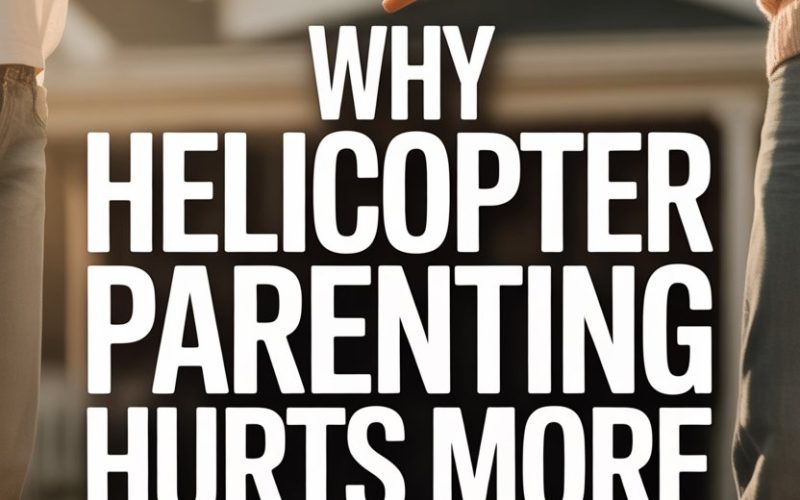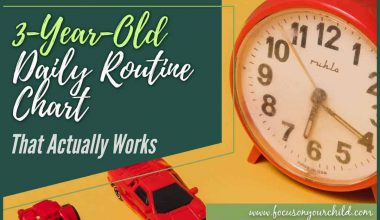Ever felt like you need superhuman powers to keep up with every detail of your child’s life?
If you’re reading this, you’re probably not alone. The urge to swoop in, bubble-wrap your child, and hover overhead like an Amazon drone on a caffeine buzz is real.
But what if all this monitoring actually clips their wings instead of helping them soar?
Let’s get into why helicopter parenting can backfire, and what you can do.
Where Did Helicopter Parenting Come From?
It didn’t just drop out of the sky one morning. The term “helicopter parenting” first showed up in the late 1960s, but it really gained lift-off in the 2000s when every playground disagreement and missed assignment could be turned into a federal case.
Technology made it easier to keep tabs (hello, mobile tracking apps), and competitive parenting went from whisper networks at school gates to full-blown social media Olympics.
No, you’re not imagining it—modern parents are more involved than ever, for better or for worse.
What Does Helicopter Parenting Look Like In Real Life?
Picture this: You’re packing your seven-year-old’s school bag, double-checking their reading log, and texting their teacher to confirm that yes, you did glue the googly eyes on the class project yourself.
Maybe you’re negotiating with the other parents in the group chat about whose turn it is to bring organic, nut-free, gluten-averse cupcakes.
And when your teen forgets their gym kit? You’re in the car, racing across town, kit in hand, sweating like you just ran a marathon—because in a way, you did.
This is the world of helicopter parenting: The intention is love. The effect? Well, we’ll get to that.
Why Do Parents Hover?
Here’s the thing: hover-parenting usually comes from a place of deep, sometimes anxious affection. You want your child to have every opportunity, to feel safe, and to avoid the struggles that you might remember from your own childhood.
Eminent psychologists point to a cocktail of fear-driven motivation—worries about safety, academic pressure, and a nagging sense that if you don’t step in, your child will fall behind.
Combine that with social comparison (thank you, Instagram), and it’s no wonder the urge to hover feels almost compulsory.
The Hidden Toll on Resilience
Here’s where it gets sticky. While hand-holding feels like the ultimate act of love, it actually can undermine a child’s confidence and resilience.
When parents smooth out every bump, kids don’t get a chance to practice problem-solving or recover from setbacks.
A study published in the Journal of Developmental Psychology found that children who experience over-involved parenting can struggle with independence and emotional regulation.
The world can feel a lot scarier for kids who never learn to tie their own shoelaces, both literally and metaphorically.
Anxiety—Passed Down Like a Family Heirloom
If you’re constantly checking your child’s whereabouts, preempting every risk, and providing a running commentary on every move, don’t be surprised if they develop a case of the jitters.
Overparented children are more likely to report higher levels of anxiety and depression later in life.
When a child never tastes a little harmless failure, even small setbacks can feel catastrophic. That’s not just stressful for them—it’s exhausting for you.
Cramping Their Social Skills
Ever bitten your tongue at a playdate when another kid refused to share? It’s tough—but resisting the urge to step in is critical.
Kids develop social skills by navigating (sometimes messy) peer interactions. Intervening at every sign of friction deprives them of these all-important playground negotiations.
According to research published in Child Development, children with helicopter parents tend to have lower social competence and high dependence on adults, even into adolescence.
Academic Pressure Cooker
Nothing says “I love you” like a colour-coded homework planner and a deep dive into the best Kumon tutors within a ten-mile radius. But leaning too hard on academic micromanagement can backfire.
Kids may learn to fear mistakes, see grades as a measure of self-worth, or simply lose their love of learning.
A Stanford University study links parental pressure to increased anxiety and burnout—funny how that enthusiastic encouragement can drive kids to dread the very activities intended to help them shine.
The Freedom to Fail—And Why It Matters
Remember when falling off your bike just meant getting back on, maybe with a dramatic bandage for effect? Somewhere along the way, fear of failure became the bogeyman of modern parenting.
Yet, psychologists stress that safe, manageable failure is essential for healthy development.
When kids get the space to stumble and recover, they build a sense of agency and grit that no amount of “good job, buddy!” can supply.
What Helicopter Parenting Does To Parents
Being on call 24/7 is not just tough on children—it saps parental energy, too. The constant vigilance required means less time for grown-up activities (or, you know, finishing a cup of tea while it’s still hot).
A 2013 study in The Journal of Child and Family Studies found a direct link between overparenting and increased parental stress and dissatisfaction.
Turns out, micromanaging a child’s every move isn’t just draining; it can leave you feeling unfulfilled as a parent.
How To Step Back Without Letting Go Entirely
All this isn’t an argument for free-range anarchy. No one’s suggesting you hand over the house keys and a credit card to your eight-year-old. The shift is about moving from “helicopter” to “supportive sideline.”
Here’s how to try it—tonight, even if your to-do list is longer than a school permission slip.
Start small. Resist the urge to double-check every backpack. If your child forgets their lunch, trust they’ll survive until home time.
It might even spark a little creative bartering in the cafeteria.
When a squabble breaks out with a friend, pause before intervening. Give your child a chance to work it out, then talk later about what happened and brainstorm together.
Offer guidance without scripting every action. Ask questions instead of giving orders—“What do you think you should do?” not “Here’s what you need to do.”
If your child has a problem, empathise without rescuing. “That sounds tough, what do you want to try next?” is powerful magic.
Rethink Success and Failure
Every parent wants their child to succeed, but it’s worth redefining what success means. Is it perfect grades and a spotless reputation, or is it the ability to handle disappointment, adapt to change, and bounce back?
Kids learn more from how you handle your own mistakes than from any lecture. If you mix up a date or burn dinner, model a little self-deprecating humour and problem-solving. It’ll stick.
When You’re Worried About Safety
Helicopter parenting is sometimes rooted in real concerns—bullying, online safety, or just the basic hope that your child won’t eat glue. Supervision is necessary, but it’s possible to set boundaries without overstepping.
Teach your child to assess risk and set their own limits, age-appropriately. Instead of “Don’t ever talk to strangers!” try “If you’re not sure, check with me first.” Equip them with skills, not just warnings.
And yes, use technology wisely. Family location apps can provide peace of mind—but try not to use them as surveillance.
Trust, once it’s there, is hard to rebuild if it breaks.
What If You’ve Been A Helicopter Parent?
You’re not alone, and you’re not a villain. The best news: kids are resilient, and so are you. Changing your approach can start with a single step, and it’s never too late.
Open up a conversation with your child, whatever their age. “I realised I’ve been getting a bit too involved, and I want to give you more space.
How can we try this together?” You’ll probably be met with surprise, but also relief.
If you need support, chat with a teacher, school counsellor, or even other parents. Everyone’s feeling their way.
Finding the Balance—And Your Sanity
Helicopter parenting is a modern epidemic, but it’s not inevitable. Kids need space to flounder and flourish, to take safe risks, and to discover their own strength.
A little stepping back can do wonders for both you and your child.
And who knows—you might finally finish that cup of tea, still warm, with your feet up. Now that’s a win worth aiming for.




